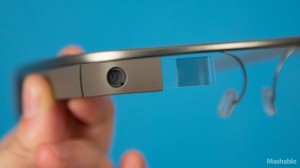
What will the world look like for the traveler in ten years? It could be sooner but if Google’s head of travel, David Pavelko, has anything to do with it, it will look like this:
Your IPITA (that’s Integrated Proactive Intermodal Travel Assistant) wakes you from your Paris hotel room slumber in a sexy, non-Siri voice and tells you your flight to your meeting in, say, Brussels, has been delayed and in order to get to said meeting on time here are your choices: other flights, scheduled high-speed train departures, drive time with traffic. You make your choice; reservations are approved and booked before the first drop of coffee from the mini-bar Keurig hits the cup. Your ticket is in your Smartphone. Your taxi is waiting.

While this scenario might exist in Hollywood screenwriter heads right now, it is, indeed, on its way, says Pavelko and in Google’s style of optimize travel planning, booking and navigation by using real-time maps and geo-specific information to revolutionize the way we consume travel.
By 2017, say the pundits, fully a third of travel sold will be digital and take place on mobile devices. Currently, 82 percent of research takes place online.
“Mobile changed everything,” said Pavelko, talking to some 6500 delegates who attended the 2014 Global Business Travel Association convention in Los Angeles last week.
“It goes with us where we go, it’s where we want it. How many of us would have ever considered not having hotel reservations booked on arrival? But this is common now as new technologies are driving last minute bookings for best values and discounts. More and more companies are building for a mobile only strategy. Look at Uber – and these things scale in a very short time.”
Pavelko noted how travel research currently is hampered by a current climate in which actions on one device are not then carried over to other devices meaning that work interrupted is often work lost.
As the average American household has 10 digital devices now – a number expected to grow to 50 over the next decade – a seamless expression across all platforms and devices is necessary and evolving he said.
“No more 20 fields of information, information lost, starting over. Shared information is the trend and as the user signs in a personalized record of that user and that user’s interests and preferences will be retained.”
(No word, of course, as to other parties with which that information might be shared)
Other trends in travel according to Google include content, which greatly influences what we see and how we see it.
“On average, a consumer goes to 20 sites and reads 12 reviews before making a travel booking decision and the traveler of tomorrow is going to be even more demanding.”
He spoke of how Google’s Street View capabilities will be increasingly important as will video content, which seems to work best when it comes to telling a story and inspiring.
But more than that is the fact that Smartphones are here to stay (stats bandied around such numbers as 95 percent of business travelers have Smartphones and 75 percent of Smartphone users do not seem to have concerns about sharing their personal preferences) and that means as travelers arrive in a new destination their phones will know it.
“My phone will know that I have arrived in Los Angeles and if I typically book three-star hotels, will offer up a list of those hotels nearby. It will offer lists of restaurants nearby. It will use my information to seek out what it seems I like. And it will all be provided in one place.”
Google Answers
He spoke about Google Answers, which, like Siri, will answer questions put to it but those questions will be less about the world than about the owner of that phone. Questions like, “tell me about Flight 62 to Chicago” will get immediate smart answers that say whether it is on time, what the delay is or that it is cancelled within a few short seconds.

Google Glass
Finally, with the advent of Google Glass and its rising mainstream ubiquity, all answers are in view all the time.
“You can stay connected without the big fumble for devices, which often gets in the way. There’s no phone, no tablet, no computer in front of your face. How many shots have you missed as you dig for your phone? Google Glass answers that. You see everything around you and nothing is missed.
“Travel is a core human behavior,” Pavelko said. That will not change. But how we travel and how we manage travel is a changing picture.
Related Stories:

































































































































































































































































































Get Social